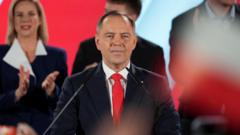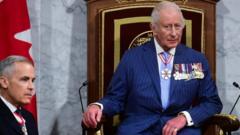Orban's recent decision to impose price controls on essential goods, including eggs, marks a significant shift in his economic policy, aiming to combat rampant inflation and political opposition.
Viktor Orban's Price Control Strategy: A Controversial Economic Move

Viktor Orban's Price Control Strategy: A Controversial Economic Move
Hungarian Prime Minister Takes Unconventional Steps to Address Inflation Amid Local Discontent
Hungarian Prime Minister Viktor Orban, once celebrated by American conservatives for his tough stance on "migration insanity" and "woke culture," is now taking unorthodox steps in economic policy by attempting to control the prices of basic food items. This move comes in the wake of soaring inflation rates in Hungary, which are currently the highest in the European Union, and a rising challenge from political rivals.
In a recent announcement, Orban mandated that the prices of 30 essential food products, including eggs and butter, would be subject to strict price controls. The government’s directive limits supermarkets to a maximum markup of 10 percent over wholesale prices. Orban highlighted that current prices for eggs, with a markup as high as 40 percent, are "unacceptable."
With mounting public frustration over inflation, which many accuse of being exacerbated by grocery chains, particularly those owned by foreign companies like Tesco and Spar, Orban is positioning his administration as a defender of Hungarian consumers. "Prices don’t rise, they are raised," he proclaimed, placing blame squarely on the shoulders of the supermarket sector.
Though praised by figures from the right in the U.S. as a model of governance, Orban's move underscores the economic hardships that many Hungarians face, indicating a challenge in balancing his conservative ideology with the pressing needs of the populace.
In a recent announcement, Orban mandated that the prices of 30 essential food products, including eggs and butter, would be subject to strict price controls. The government’s directive limits supermarkets to a maximum markup of 10 percent over wholesale prices. Orban highlighted that current prices for eggs, with a markup as high as 40 percent, are "unacceptable."
With mounting public frustration over inflation, which many accuse of being exacerbated by grocery chains, particularly those owned by foreign companies like Tesco and Spar, Orban is positioning his administration as a defender of Hungarian consumers. "Prices don’t rise, they are raised," he proclaimed, placing blame squarely on the shoulders of the supermarket sector.
Though praised by figures from the right in the U.S. as a model of governance, Orban's move underscores the economic hardships that many Hungarians face, indicating a challenge in balancing his conservative ideology with the pressing needs of the populace.





















